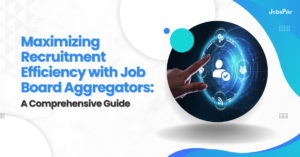Java is one of the most popular programming languages. It is used in every service-based as well as product-based company. As per JobsPikr data, Java has been the number one programming skill in job postings in 2021. Hence, it is not surprising that companies have a high demand for professionals skilled in Java even today. To help you with your interview, we are going to list the top Java 8 interview questions. Remember, it is not enough to have understanding and training in a certain subject. It is crucial that you organize your thoughts and focus on the most common questions.
Let’s start with the Java 8 interview questions. But before that let’s introduce you to Java 8.
What is Java 8?
Java 8 was launched on 14th March 2014. Java is a programming language owned by Oracle. Version 8 It is the latest release by Java containing enhancements, new features, and bug fixes for improving efficiency when a programmer is running a Java program.
Now, it is time we proceed to the interview questions.
Java Interview Questions & Answers
What are the New Features Added to Java Version 8?
Java 8 has many new features but the most prominent ones are-
- Lambda Expressions
- Optional, a special wrapper class
- Method References
- Default Methods
- Stream API
- Nashron, JavaScript Engine
- Default Methods
- Date API
In Which Programming Paradigm does Java 8 Belong To?
Java 8 belongs to-
- Logic programming language
- Object-oriented programming language
- Procedural programming language
- Functional programming language
Can You Tell Us a Few Standard Java Pre-Defined Functional Interfaces?
A few popular pre-defined functional interfaces from the old Java versions are Callable, Runnable, Comparable, and Comparator. Java 8 can introduce functional interfaces, such as Predicate, Consumer, Supplier, and many more.
What are the Advantages of Using Java Programming Language?
Java comes with many advantages, such as-
- The code is more readable and concise
- Code can be tested and maintained better
- The code can be reused
- All applications will perform better
- Users will now be able to write parallel code
- The code is scalable and concurrent
- Users will be able to write database-like operations
- The codes will be more productive
What is a Functional Interface and Tell Us the Rules to Define a Functional Interface?
A functional interface has a single abstract method. In case such an interface is needed, a Lambda Express can be used in its place. Functional interfaces offer target types of Lambda Expressions and also method references. The return type and arguments of such an expression match those of the single abstract method directly.
Generally, Functional interfaces are annotated with @FunctionalInterface annotation that is informative and does not have an impact on the semantics.
What is Lambda Expression and its Use?
Simply put, a Lambda Expression is a function, which we can refer to and pass around as an object. Furthermore, Lambda Expression introduces a functional style process in this programming language and drives the writing of easy-to-read and compact code. Thus, Lambda expressions are used in place of anonymous classes, like method arguments. One of their primary uses is defining functional interface’s inline implementation.
Characteristics of a Lambda Expression
A lambda expression has two parts, the parameter, and the expression part, which is separated by a forward arrow.
It has the following characteristics:
- Optional Type Declaration: When you declare parameters on lambda’s left-hand side, you don’t have to declare their types as the compiler might infer from the values.
- Optional Curly Braces: If expressions are just a part of one statement, you don’t need curly braces.
- Parentheses: If only one parameter is declared, you will not have to place it in parentheses.
- Optional Return Statement: In case the expression returns a value, it will be wrapped within curly braces and then you will not need a return statement.
Default Method
A default method includes implementation and will be found within an interface. The method can add new functionalities to the interface while it preserves backward compatibility along with the classes, which implement the interface already.
What is the Difference Between Terminal and Intermediate Operations?
We blend stream operations into pipelines for processing streams. The operations are either terminal or intermediate. Intermediate operations are the ones, which return Stream itself, enabling further operation on the stream.
The operations are lazy and don’t process the stream. An intermediate operation is capable of processing data if the terminal operation. A few intermediate operations are map, filter, and flatMap.
On the contrary, terminal operations can terminate the pipeline to initiate stream processing. Usually, the stream is going to pass through intermediate operation at the time of terminal operation call.
What is Stream Pipelining?
Stream pipelining is a concept of connecting operations together. This is done by splitting the operation that might take place on a stream into two different categories- terminal and intermediate operations.
Every intermediate operation can return an instance of Stream while running. Thus, it is possible to create an arbitrary number of intermediate operations for processing data and forming a pipeline.
There has to be a terminal operation that returns a value and calculates the pipeline.
Will Java Remain at The Top of the Programming List?
It is evident that Java is a programming language that is highly in demand. It has secured a rank in PYPL, as well as TIOBE programming language ranking. The top tech giants, such as LinkedIn, PayPal, Twitter, Amazon, etc. have used Java for building their web applications or backend web systems. In fact, it is one of the most popular languages when it comes to developing Android applications.
We have listed the top 10 Java 8 interview questions. This is not an exhaustive list. However, it has questions that we think are going to appear in every new Java 8 feature. Even if you are a newbie, you should not ignore Java 8 syntax before going for an interview.




